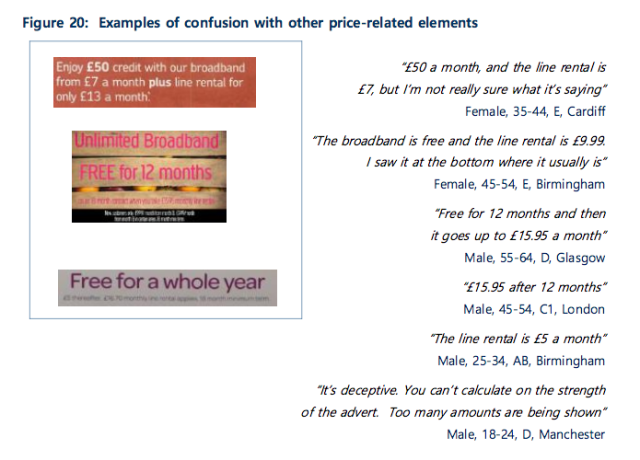
Updated, October 31: Starting today, the ASA will start enforcing new broadband advertising rules. The new rules (detailed below) require fixed-line ISPs to advertise all-inclusive costs, including telephone line rental, and give greater prominence to up-front costs and contract length. The ASA's rules apply to all forms of advertising, including TV ads, billboards, newspapers, etc.
BT, Sky, TalkTalk, Plusnet, and Virgin Media have updated their websites with all-inclusive pricing. Some smaller ISPs, too, are showing all-in pricing (Zen, Andrews & Arnold, Post Office, Hyperoptic).
As always when pricing structures change, be careful: some ISPs may use this as an opportunity to stealthily change the total price of a broadband package. At first glance, though, it doesn't look like any of the major ISPs has dramatically increased or decreased prices.
Original story (May 4)
Broadband ads in the UK must be much clearer from October 31 this year—with ISPs facing a ban on separating out line rental prices.
The Advertising Standards Authority ruled on Wednesday that telcos should be much more upfront with customers about the full cost of packages they are marketing to folk.
TalkTalk was quick to say that it would end the practice of separating out prices ahead of the ASA's announcement. It said on Tuesday that it would "move toward a single monthly cost including line rental, known as 'all-in pricing,' which will come into effect this autumn."
But use of the words "move toward" indicates that the budget telco will be phasing out those ads—which it has been doing for some months now—rather than implementing an immediate ban.
"As long as line rental and broadband are priced separately, the temptation to advertise deals in this way will always be there," said TalkTalk consumer MD, Tristia Harrison. "But it's time for providers to be honest about this—it's a bad habit we have all been guilty of, it doesn't serve customers well, and it's time it stopped."
Broadband ads will be expected not only to ditch separated out line rental prices, but also to be much more transparent about the length of a contract, and costs after a discount offer period expires.

The ASA's actions come after it published research—involving 300 participants—with UK communications watchdog Ofcom, which concluded (PDF) that consumers were regularly misled by ISPs' presentation of prices.
Would-be broadband subscribers said they were confused by unequal prominence on pricing; ambiguity; lack of clarity; and partial omission of the information consumers needed to make an informed decision about which ISP to sign up to, based on costs.
Nearly a quarter of participants in the survey failed to identify the total cost of a broadband deal after viewing the adverts twice.
In January, the ASA warned ISPs that they had to clean up their advertising practices. Telcos were quick to attack the plan, however.
"Price is only one factor when a consumer chooses a service, and the engagement with an advert is only one part of a purchasing decision," Nicholas Lansman—the secretary general of the Internet Service Providers' Association (ISPA)—said at the time.
He had also quibbled over the ASA and Ofcom's 300 participants' sample size used in the research, after those figures were extrapolated across the UK population leading to a rough estimate of 4.3 million households apparently being unable to identify the correct price for a broadband deal.
Lansman said on Wednesday:
ISPA supports the ASA’s efforts to make it clearer and easier for consumers to understand the total cost of a broadband package. We welcome that the ASA has taken on board our feedback and excluded providers that do not offer line rental as the market becomes more diverse with evolving products and services to consumers.
The ASA's chief, Guy Parker said: "We recognise the importance of broadband services to people's lives at work and at home. The findings of our research, and other factors we took into account, showed the way prices have been presented in broadband ads is likely to confuse and mislead customers.
"This new tougher approach has been developed to make sure consumers are not misled and get the information they need to make well-informed choices."
Correction: This story originally stated that Plusnet and Hyperoptic did not update their websites to all-in pricing on the morning of October 31. Both companies assert that their websites were updated at or before October 31; perhaps Ars was seeing cached pages?
Listing image by Dan Brady
reader comments
31